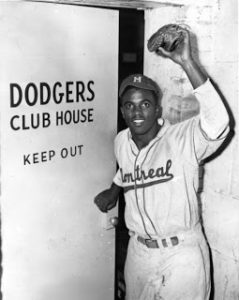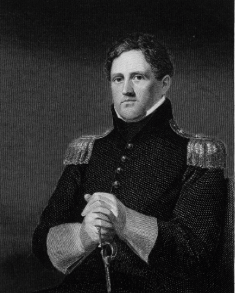As the Olympic Games of 2016 come to an end, one may ponder the origins of such an influential event. It was in 776 B.C.E. when the first Olympic game made its appearance in history. The location is quite interesting on its own, since it was in Olympia, Greece. Olympia is where Greeks would come and honor the gods, and they held several festivals in their honor. The name of the city and game comes from the nearby mountain named Olympos, which was not only the highest mountain in Greece, but it was also once home to the greatest Greek gods and goddesses, according to Greek mythology. The motive for starting such a competition was because Greeks had a deep appreciation for the human body and competition. According to the Greek philosopher Socrates, it is a “disgrace for a man to grow old without ever seeing the beauty and strength in which his body is capable.”1 In addition, the competition provided a platform for establishing a sense of collective identity among the different city-states that competed. Officials and competitors flocked to the events in Olympia, which included foot races, long jumps, boxing, wrestling, and many others. Unlike today’s Games, winners then did not receive gold medals. Instead, olive leave wreaths were given to the winners of the events, and the admiration of their city-states was another plus.2
The games were held every summer, every four years, in Olympia in honor of the mythological god Zeus. The competitors were strictly males from poleis all around the Greek Mediterranean. Those who had the time and money to train and to attend the events were usually from the elite class. For a time women were not only banned from participating in the events, but they were also restricted from watching. One reason for this was that in the boxing and wrestling matches, the contestants were so set on winning that the fights became too bloody to watch.3 In addition to this, the athletes competed covered in olive oil, to emphasize their obsession with the human body. Nevertheless, it was not deemed suitable for women or young audiences to watch. Eventually, after the Greeks saw the influx of people coming in from all parts of the Greek world, they held a festival where only women who were not married could participate. It consisted of mostly foot races and was dedicated to honor the goddess Hera, Zeus’s wife.4

The first and only event for the first thirteen Games was a foot race. Over time, officials added longer and shorter distances to attract more competitors. When more participation from the city-states increased, they added sports such as wresting, the long jump, and discus. Boxing made its appearance not long after in the 18th Olympic Game. One of the rules in the boxing matches was that there was not a time limit or a weight limit, so opponents were essentially chosen at random. Equestrian sports, such as the chariot race, was introduced in 680 B.C.E. Realizing how popular and time consuming the sports had become, officials extended the games to seven days. One reason for this was because the games had more competitions than could be fit in a day or several days. The first day was reserved for honoring the gods in ceremonies, and after the fifth day of competition, the day was reserved to award prizes and to feast.5 To challenge the contestants further, officials added an armored race, which consisted of two grueling laps around the stadium wearing twenty-five pounds of armor. By the end of 580 B.C.E., a whopping fifty events were in motion.
The ancient Olympic Games were very important to the Greeks. Not only did competitors train for years just as athletes do now, but leaders from all around the Greek world journeyed to Olympia for the games. Major leaders from the city-states and beyond went and supported their athletes, while also getting the opportunity to discuss political and economical matters face to face with the other leaders. It was not often that the leaders met face to face. An Olympic truce was called upon athletes and spectators during the games in order to ensure that it was the main concern. Truce bearers traveled to each participating Greek polis and ordered them not to engage in any warfare during the games. 6 One reason for this was that Greeks rarely agreed on anything political or economical, so the truce forced them to oblige. Bringing home a champion from the games was considered a very high and honorable award. It brought prestige and pride to their polis, and it connected them to each other in a way nothing else could. Athletes did not compete for the prizes they won; they competed for the fame and glory of being the victor.
Despite all of its glory and fame, the last Olympic game was held in 393 C.E. when Emperor Theodosius banned the games by claiming they were “pagan acts.” 7 Twelve glorious centuries of the games inspired many aspects of life in Greece from religion to literature. Literature and sculpting competitions were a part of the Olympic games, and it gave many artists a platform to debut their talents to larger audiences. Religion in ancient Greece was devoted to the worship of mythological gods and goddesses, and so the games became extensions of their religious practices honoring their mythological gods. It took 1500 years for the games to be revived again after 393 C.E. After the reestablishment of the games it was evident that the motives remain the same in appreciating the marvels of the human body and competition.
- Tom Griffith, Essential Thinkers – Socrates (New York: Barnes & Noble Books, 2004), 128. ↵
- Jerry Bentley, Herbert Ziegler, and Heather Streets Salter, Traditions & Encounters: A Brief Global History Volume 1, 4 edition (New York: McGraw-Hill Education, 2015), 144. ↵
- Judith Swaddling, The Ancient Olympic Games, Second Edition (Austin: University of Texas Press, 2000), 78. ↵
- Swaddling, The Ancient Olympic Games, 43. ↵
- Swaddling, The Ancient Olympic Games, 53. ↵
- Swaddling, The Ancient Olympic Games, 11. ↵
- Salem Press Encyclopedia, January 2015, s.v. “Olympic Games in the Ancient World,” by Thomas J. Sienkewicz. ↵



84 comments
Daniel Matheu Baldor
I started reading this article because I love sports. I can not imagine how could it felt to be part of the Olympics in ancient Greek. This article is really interesting because you can know you when Olympics started, where they took place, which competitions they had…
I also love to see how much some competitions have changed from that time, while others have not changed a lot, like foot races.
Skyla Bonilla
I began reading the article because I have always loved competition and I thought the olympic games were always interesting so I wanted to see where it came from. This article was super interesting because I had no idea how much these games revolved around the greek gods and greek culture in general. I loved reading about the progression as well like how they changed some of the rules so that there was more diversity. I loved that the author chose this topic because it is not something many people care to ask questions about but the olympics are such a big part of the world today and everyone gets involved
James Clark
The Olympics are something that everyone knows about and athletes dream to even compete in. Yet, the idea of the Olympic games came from ancient Greek culture. It’s truly special how so many Greek and “Roman” practices have bled over into the modern era. Their culture still is something that we study today and their accomplishments are something we still marvel at. Athletes still want to compete in the Olympic games and see it as one of the highest honors, and the citizen’s of the world still want to watch. Overall, it’s great to see how a piece of Greek culture that was meant to inspire competition has now lead to the connection and creation of friendships amongst athletes all over the world.
Sehar Sohail
I have always known about the Olympics and have watched a few games too. I think that it’s interesting that even in this century we are following the traditions of the Greeks. They used to play games for competition and to just come together and have fun. These games that were played in the ancient time, even in this century people compete against each other to play the same games. The article was very interesting in terms of the way it explained how the Olympics took place.
Jake Faryniarz
This was a very interesting article over the Olympic games when it first was created. I thought it was surprising that they had an Olympic truce where no one was allowed to start warfare during the games. I didn’t know that the Olympic games back then also gave opportunities for other leaders to talk face to face about political and economic matters. This article was very informative about the beginning of the Olympic games and how it ended during Emperor Theodosius rule.
Nadia Manitzas
To know that the Olympics has been around for such a long time is amazing. Being a sport guru, it’s interesting to see that most of the sports we play today we’re used in the past just more modified. Now we have all the countries participating in these games!
Camille Kwan
I found it amazing to hear about all the similarities the Olympics back then had to modern day olympics. The hours of training, the four year break, and the different events that were held to honor the body that God gave us. I remember reading something that the olympians used to only be men and they would fight completely naked and I thought that was super funny. overall, a very informative article for the background of our modern day olympics.
Micheala Whitfield
Great way to write about the games. I enjoyed, reading this. You referenced their obsession for the human body and what it’s capable of. Greeks history has strength written all over it. They worshipped and listened to the story of the gods and their incredible strength they exceed in their stories. All the way down to the demi-gods. Not to mention, competition comes natural to humans. Especially in men. It’s not to be put in a bad manner, for men it’s just how they are friendly to one another, not to mention to show off in attracting a partner. It was this simple festival that turned into a way for all humans, to drop what’s going on around them, to celebrate a bit of competition, just for fun.
Andrea Degollado
The Olympics are popular all across the globe, however i don’t think i ever put much thought into where it originated from. This article was very informative and very well developed. I think this article does great in explaining the purpose of the Olympics and how important they were and are considered. This article was great to read. Great job!
Ana Cravioto Herrero
My family has never been much about watching the olympics, but I have always been very interested in them. Despite what is politically going on, athletes from all around the world gather at this event and it is amazing to see all of us come together as one. It is very interesting to hear about the events origins and as basic as it may be, it was funny to hear that it was named after Olympia, the city where it all started.